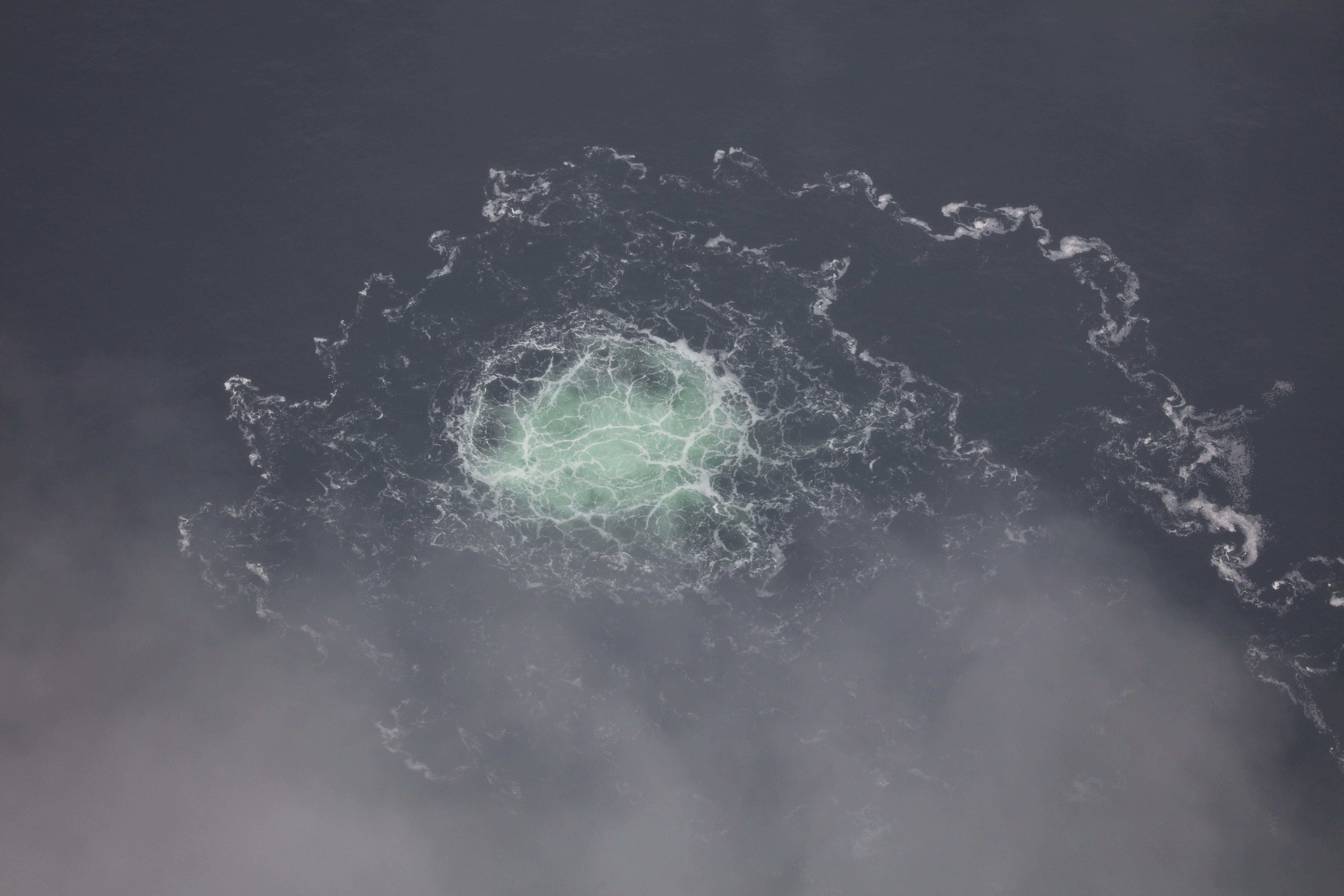Gas pipeline sabotage came amid US policy of driving Russia-Western Europe ‘wedge’, Hersh says
 In this picture provided by Swedish Coast Guard, a leak from Nord Stream 2 is seen, on Sept 28, 2022. (SWEDISH COAST GUATFD VIA AP)
In this picture provided by Swedish Coast Guard, a leak from Nord Stream 2 is seen, on Sept 28, 2022. (SWEDISH COAST GUATFD VIA AP)
The Nord Stream gas pipeline sabotage in the Baltic Sea in 2022 was the result of a long-standing US policy of driving a wedge between Russia and Western Europe, well-known investigative journalist Seymour Hersh said in his latest article titled “The Nord Stream pipelines and the perils of containment”.
Feb 8 marks one year since Hersh reported US President Joe Biden’s decision in the fall of 2022 to send a signal of resolve to Russian leader Vladimir Putin by destroying Nord Stream 1 and 2, the Russian natural gas pipelines. Nord Stream 1 had turned Germany into the most powerful economic force in Western Europe.
The Nord Stream pipelines, which carried Russian natural gas into Germany and the wider European Union via underwater routes across the Baltic Sea, were ruptured in what appears to have been a series of deliberately set explosions in the waters of Sweden’s and Denmark’s economic zones.
READ MORE: Moscow to 'further monitor' Nord Stream case development
During investigations, officials from both Sweden and Denmark said they found traces of explosives, which suggested deliberate sabotage. The pipelines have been crippled ever since.
With the blasts happening soon after the start of the Russia-Ukraine conflict, and with Russia’s exports of natural gas to the EU in the spotlight at the time, Russia has contended that the blasts were instigated by the United Kingdom and the United States, and called for a “transparent international investigation” to get to the truth.
“I won’t dwell on the failure of the mainstream media to follow up on that story—some reporters, as I learned decades ago, have inside sources and others do not,” Hersh wrote in his latest piece, published on the Substack newsletter platform.
“But I will relate a lesson I learned about presidential signaling of the sort that is going on now against the Houthis in Yemen; against the Iranians, who are believed to be behind much of the anti-Americanism in the Middle East; and, of course, against Moscow in the Ukraine war,” he wrote, before recounting a Cold War story he was told by someone who was steeped in the history of the early days of American intervention in Vietnam.
Meanwhile, in Stockholm, Sweden on Feb 7 dropped its investigation into the Nord Stream explosions, saying it lacked jurisdiction in the case, but said it had handed evidence it had uncovered over to German investigators. Xinhua
Swedish prosecutors concluded that nothing had emerged to indicate that Sweden or Swedish citizens were involved in the attack which took place “in international waters”.
“Against the background of the situation we now have, we can state that Swedish jurisdiction does not apply,” Public Prosecutor Mats Ljungqvist said in a statement.
ALSO READ: Sweden closes Nord Stream blasts investigation without result
Kremlin spokesman Dmitry Peskov said on Feb 7 that Russia will watch what Germany does to investigate the explosions.
In July, Germany told the UN Security Council that it had found traces of subsea explosives on a sailing yacht that “may have been used to transport the explosives”, and that trained divers may have attached the explosives to the pipelines.
“Of course, now we need to see how Germany itself reacts to this, as a country that has lost a lot in relation to this terrorist attack,” Peskov said.
“It will be interesting to see how thorough the German authorities will be when it comes to this investigation,” he added.
Danish police said on Feb 7 that its investigation into the Nord Stream pipeline blasts continued, and that it expects to provide more information on its probe “within a short time”.
Earle Gale in London contributed to this story


